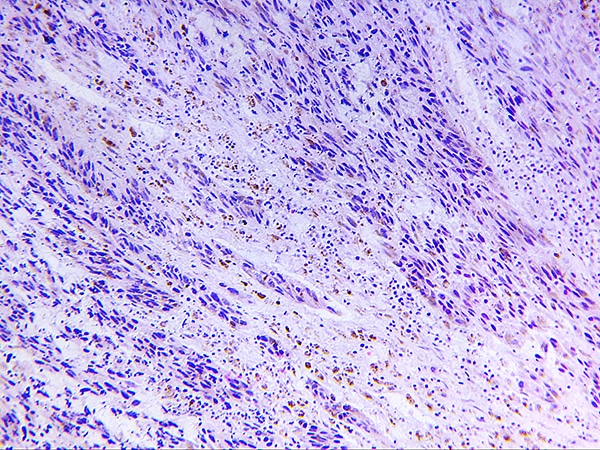Immunotherapy for Earlier Stages of Melanoma
The FDA approved an immune checkpoint inhibitor for patients with stage IIB or IIC melanoma following surgical removal of their tumor.
The U.S. Food and Drug Administration (FDA) approved the immunotherapeutic pembrolizumab (Keytruda) for the treatment of patients 12 years of age and older with stage IIB and IIC melanoma. The drug is intended for use after the tumor has been surgically removed to prevent the cancer from coming back.

Pembrolizumab is an antibody that blocks the function of the protein PD-1, which is expressed on immune cells called T cells. When PD-1 binds to its ligand PD-L1, which is commonly found on the surface of cancer cells, PD-1 blocks T-cell activity, preventing the T cells from fighting the tumor. The drug was previously approved for the treatment of patients with unresectable or metastatic melanoma.
The latest approval for earlier-stage melanoma is based on data from KEYNOTE-716, a multicenter, randomized, double-blind, placebo-controlled clinical trial that recruited 976 patients with stage IIB or IIC melanoma that had been completely surgically resected. Patients were randomly assigned to receive pembrolizumab or placebo every three weeks for up to one year until disease recurrence or unacceptable toxicity. Patients assigned to the pembrolizumab arm were 35 percent less likely to experience a disease recurrence, after a median follow-up of 14.4 months, than patients assigned to the placebo arm.
Melanoma is a rare but potentially deadly form of skin cancer that develops in melanocytes, the cells that make pigments found in the skin. According to federal statistics, it is estimated that almost 100,000 people will be diagnosed with melanoma and over 7,000 people will die from the disease in 2022 in the United States.
The FDA approval was rendered on December 3, 2021.
